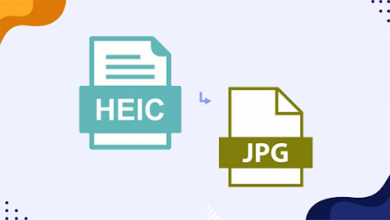Navigating the AI Revolution: Balancing Innovation, Responsibility, and Human Insight

The rapid evolution of Artificial Intelligence (AI), especially through advancements in Large Language Models (LLMs), is dramatically reshaping global society. Industry leaders, including OpenAI, Anthropic, Google, and AWS, are at the forefront of pioneering AI technologies. These advanced systems automate routine tasks, personalize user experiences, enhance productivity, and open avenues for innovation across numerous sectors. However, alongside these significant advancements, responsibly managing AI integration becomes increasingly crucial to mitigate associated risks.
As AI permeates more aspects of daily life, from simple interactions like customer service chatbots to complex medical diagnostic tools, the necessity for careful oversight and ethical considerations escalates. AI’s capabilities, while remarkable, inherently carry the risk of amplifying biases, inaccuracies, or unintended ethical issues if deployed without rigorous monitoring. Developing and enforcing effective governance structures – comprising transparency, accountability, and continuous auditing – is essential to ensuring AI solutions align with ethical standards and practical requirements.
Maryna Bautina, a Senior AI Consultant at the global consulting firm SoftServe, underscores the significance of adopting a human-centric approach in AI integration. With years of experience leading AI projects for international enterprises, she emphasizes collaboration between humans and AI systems. “Successful AI implementations rely heavily on strategic human-AI collaboration,” says Maryna. “AI can significantly enhance our capabilities, but it is only through active human engagement that we ensure these technologies are used ethically and effectively.”
Her expertise, drawn from guiding complex AI deployments across diverse industries, brings attention to the need for ethical oversight. “Human oversight is indispensable because, despite their sophistication, AI systems lack genuine understanding and contextual sensitivity – elements that remain uniquely human,” Maryna continues. “Our role is to bridge that gap and apply contextual judgment where AI cannot.” This insight naturally leads to a deeper concern about how our evolving relationship with AI affects human cognition.
Beyond immediate oversight concerns, a growing issue is the cognitive impact of increased dependency on AI. As automation handles an expanding range of decision-making processes – from selecting news content to determining credit eligibility – individuals and organizations risk experiencing a gradual erosion of vital cognitive skills. Tasks that once required active reasoning and analysis are increasingly being offloaded to algorithms, reducing opportunities for critical thinking and intellectual engagement.
“Delegating too many responsibilities to automated systems can dangerously erode critical thinking and problem-solving skills,” Maryna cautions. “If we become too comfortable letting machines decide for us, we not only lose our analytical edge, but we also compromise our ability to question and interpret outcomes.”
This growing reliance can foster a form of cognitive complacency, where human judgment becomes secondary or even obsolete in environments designed to favor speed over scrutiny. Maryna adds, “We must be vigilant in preserving and nurturing these human abilities, or we risk becoming passive operators of powerful systems we no longer fully understand. The danger lies not just in technical errors, but in the gradual deskilling of entire workforces who are no longer required to think critically.”
To counter these challenges, it is essential to examine how various industries are approaching responsible AI integration. Across sectors, real-world applications offer valuable lessons on balancing technological advancement with human insight. In healthcare, for instance, AI-driven diagnostic tools improve patient outcomes by complementing medical expertise, yet crucial decisions remain firmly under human control. Maryna emphasizes, “In healthcare, AI should enhance human capabilities, never fully replace the human judgment essential in medical decisions. The stakes are simply too high for us to rely on automation alone.”
In finance, AI algorithms efficiently detect fraudulent activities, but human analysts ultimately validate the findings, ensuring accuracy and fairness. In education, AI-powered personalized learning platforms offer tailored instruction, but it is up to educators to ensure these tools support, rather than replace, critical thinking development. Similarly, logistics firms employ AI to optimize supply chain efficiency, while retaining human judgment to address context-specific challenges that automation may overlook.
Drawing from these diverse examples, Maryna highlights that successful AI deployment hinges on intentional, long-term strategies. “Organizations that succeed with AI maintain a culture of accountability and continuous learning,” she advises. “This includes not just technical training, but fostering ethical awareness and adaptability in the face of rapidly evolving technology. Teams must be prepared to question assumptions, evaluate AI outcomes critically, and remain agile as both the technology and its implications evolve.”
Ultimately, managing the AI revolution responsibly is a collective endeavor. It involves policymakers, technologists, businesses, educators, and individuals working together to establish clear ethical guidelines, prioritize continuous skill development, and maintain vigilant oversight. By embracing this balanced and intentional approach, society can harness the transformative potential of AI technologies while effectively managing inherent risks, leading to sustainable progress and meaningful innovation.

Source: Navigating the AI Revolution: Balancing Innovation, Responsibility, and Human Insight




